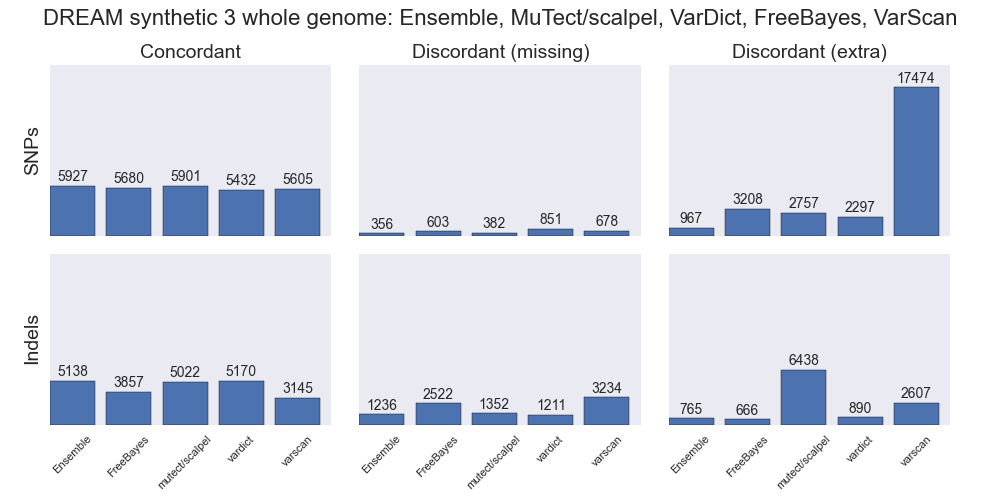PostgreSQL 9.5 Alpha 2 is due to be released on August 6. Not only does the new version support UPSERT, more JSON functionality, and other new features we looked at back in July, it also has some major enhancements for “big data” workloads. Among these are faster sorts, TABLESAMPLE, GROUPING SETS and CUBE, BRIN indexes, and Foreign Data Wrapper improvements. Taken together, these features strengthen arguments for using PostgreSQL for data warehouses, and enable users to continue using it with bigger databases.
Source: “Big data” features coming in PostgreSQL 9.5 [LWN.net]
Month: August 2015
The Fourth Law of Behavior Genetics
Source: The Fourth Law of Behavior Genetics
Machine Learning
Website for the Department of Computer Science at the heart of computing and related interdisciplinary activity at Oxford.
Source: Machine Learning
Living Off the Grid Under the Sun · Bogdan’s Blog
Off the Grid but Still Connected
Water, heat, and electricity are important, sure. But there is one final utility that one truly cannot live without in todays day and age. I am talking about the internet, of course.
Source: Living Off the Grid Under the Sun · Bogdan’s Blog
Validating multiple cancer variant callers and prioritization in tumor-only samples | Blue Collar Bioinformatics
 Source: Validating multiple cancer variant callers and prioritization in tumor-only samples | Blue Collar Bioinformatics
Source: Validating multiple cancer variant callers and prioritization in tumor-only samples | Blue Collar Bioinformatics
CS for All — cs5book 1 documentation
1.1 What is Computer Science?
You might be uncertain about what computer science (CS) is, but you use it every day. When you use Google or your smartphone, or watch a movie with special effects, there’s lots of CS in there. When you order a product over the Internet, there is CS in the web site, in the cryptography used to keep your credit card number secure, and in the way that FedEx routes their delivery vehicle to get your order to you as quickly as possible. Nonetheless, even computer scientists can struggle to answer the question “What exactly is CS?”
Many other sciences try to understand how things work: physics tries to understand the physical world, chemistry tries to understand the composition of matter, and biology tries to understand life. So what is computer science trying to understand? Computers? Probably not: computers are designed and built by humans, so their inner workings are known (at least to some people!).
Perhaps it’s all about programming. Programming is indeed important to a computer scientist, just as grammar is important to a writer or a telescope is important to an astronomer. But nobody would argue that writing is about grammar or that astronomy is about telescopes. Similarly, programming is an important piece of computer science but it’s not what CS is all about.
If we turn to origins, computer science has roots in disparate fields that include engineering, mathematics, and cognitive science, among others. Some computer scientists design things, much like engineers. Others seek new ways to solve computational problems, analyze their solutions, and prove that they are correct, much like mathematicians. Still others think about how humans interact with computers and software, which is closely related to cognitive science and psychology. All of these pieces are a part of computer science.
One theme that unifies (nearly) all computer scientists is that they are interested in the automation of tasks ranging from artificial intelligence to zoogenesis. Put another way, computer scientists are interested in finding solutions for a wide variety of computational problems. They analyze those solutions to determine their “goodness,” and they implement the good solutions to create useful software for people to work with. This diversity of endeavors is, in part, what makes CS so much fun.
There are several important concepts at the heart of computer science; we have chosen to emphasize six of them: data, problem solving, algorithms, programming, abstraction, and creativity.
Zoogenesis refers to the origin of a particular animals species. Computational biology is a field that uses CS to help solve zoogenetic questions, among many others.
Source: CS for All — cs5book 1 documentation
PostgreSQL 9. 5 New Features With Examples
Source: PostgreSQL 9. 5 New Features With Examples
Frequentism and Bayesianism V: Model Selection
Source: Frequentism and Bayesianism V: Model Selection
Change Your Name
If you have a US startup called X and you don’t have x.com, you should probably change your name.
The reason is not just that people can’t find you. For companies with mobile apps, especially, having the right domain name is not as critical as it used to be for getting users. The problem with not having the .com of your name is that it signals weakness. Unless you’re so big that your reputation precedes you, a marginal domain suggests you’re a marginal company. Whereas (as Stripe shows) having x.com signals strength even if it has no relation to what you do.
Source: Change Your Name
[1507.06893] Do Open Source Software Developers Listen to Their Users?
In application software, the satisfaction of target users makes the software more acceptable. Open Source Software (OSS) systems have neither the physical nor the commercial boundaries of proprietary software, thus users from all over the world can interact with them. This free access is advantageous, as increasing numbers of users are able to access OSS; there are more chances of improvement. This study examines the way users feedback is handled by OSS developers. In our survey, we have also inquired whether OSS developers consult professional usability experts to improve their projects. According to the results, majority of OSS developers neither consider usability as their top priority nor do they consult usability experts.
Source: [1507.06893] Do Open Source Software Developers Listen to Their Users?
